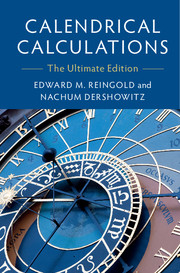When we look back at the twentieth century, I have no doubt that the single most important idea that we will see to have emerged there is the idea of computation. And already that idea has transformed our technology and many aspects of our world. But there is, I believe, still much more to come.
Although he certainly did not realize the magnitude of what he was starting, Alan Turing in 1936 laid the single most critical foundation for the idea of computation when he invented the universal Turing machine.
By the time Turing died in 1954, this idea had come by a circuitous route (through neural networks and the like) to inform early practical electronic computers. And it had also led Turing himself to think in a real way about the creation of artificial intelligence.
But that was about as far as it got. And in his last years, when Turing thought, for example, about theories of biology, he did not realize that his ideas of computation might be relevant to them.
Through the rest of the 1950s and into the 1960s and 1970s, practical computers became more and more powerful, and more and more common. And, at least among the small community of theoretical computer scientists, universal computing took its place as a foundational concept.
Meanwhile, however, the rest of science continued its development, based in some cases on experiment and in some cases on mathematical analysis. Computers were occasionally used to support these existing methods. But there was no real idea that computation as an abstract concept might be centrally relevant.
And indeed, in a sense, as computer technology advanced, computation as a concept seemed to recede more and more – as something to be mentioned for background but not something to be made the core of what should be studied.
If Turing had lived longer, I rather suspect he might not have left it that way –instead he might have begun to realize the much broader significance of the concept of computation, the foundations of which he was so instrumental in laying.
I was born five years after Alan Turing died. And in my half-century of life so far, I have launched three large projects, all fundamentally based on the idea of computation and all, strangely enough, pointing in directions that I suspect Alan Turing might have followed had he lived longer.
